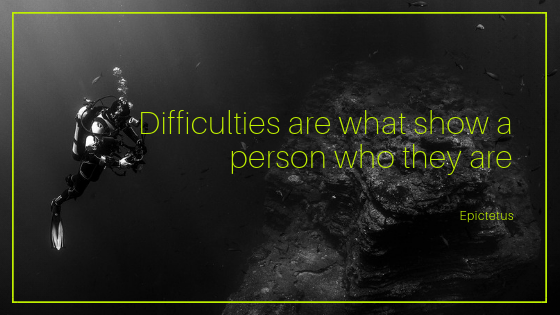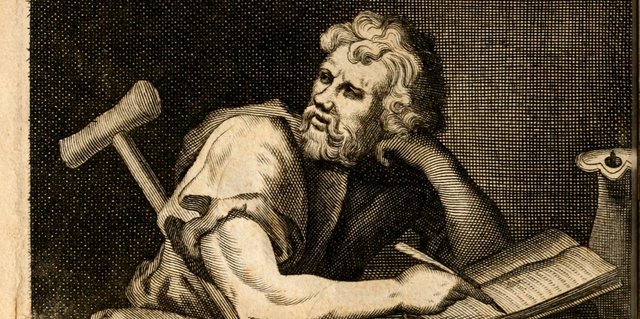Embrace your difficulties in life, Epictetus - Stoic Happiness Wednesday's #48

Difficulties are what show a person who they are
-- Epictetus
This is a quote taken from Epictetus' Enchiridion and it resembles the importance of facing hardships in life because of the lessons we can all learn from hardships. They are often the largest lessons of life you will face and what is really important is your perspective on those lessons. In other words, it is really important to learn from them and to make any difficulties into a positive.
We have all been there... when the world feels like it is caving in, when it feels like nobody wants to help us, or worse yet; when we feel like nobody even understands us. These are the difficulties that we can reflect on, observing who we are in those moments, how we react, how we speak inwardly to ourselves and outwardly to others. Believe it or not, that is who you are as a person, as well as all of the good, there is also all the pent up anxiety, anger and impatience of being a human being that all like to show face when the going gets tough. Now we mustn't berate ourselves for being like this, we can merely get better at dealing with our difficulties over time - and this comes from being in a state of Prosoché (mindfulness). Be mindful of who you are when the going gets tough, and let's look at improving our attitudes to life and society. Embrace yourself as the difficulties lift the cloud of mystery on who you truly are, learn to love that person, and build on your character.
Have a great week!
Who was Epictetus?

Born into slavery 55AD Epictetus is the famous Stoic of whom is most influenced by God, or the Greek Gods as they were in those times. His slave master was very fond of him and allowed him to study philosophy in his spare time, and this is when he was exposed to the ‘Stoa’ teachings by his mentor Musonius Rufus. Epictetus gained freedom from slavery shortly after Emperor Nero’s death and subsequently began teaching philosophy. He taught stoicism for the rest of his life, even when forced to leave Rome as philosophers were banned in Rome, he simply moved to Greece and taught for his remaining days until he died in 135AD. His tao is spread over a few books, each of which is harder reads when compared to Aurelius or Seneca’s writings.